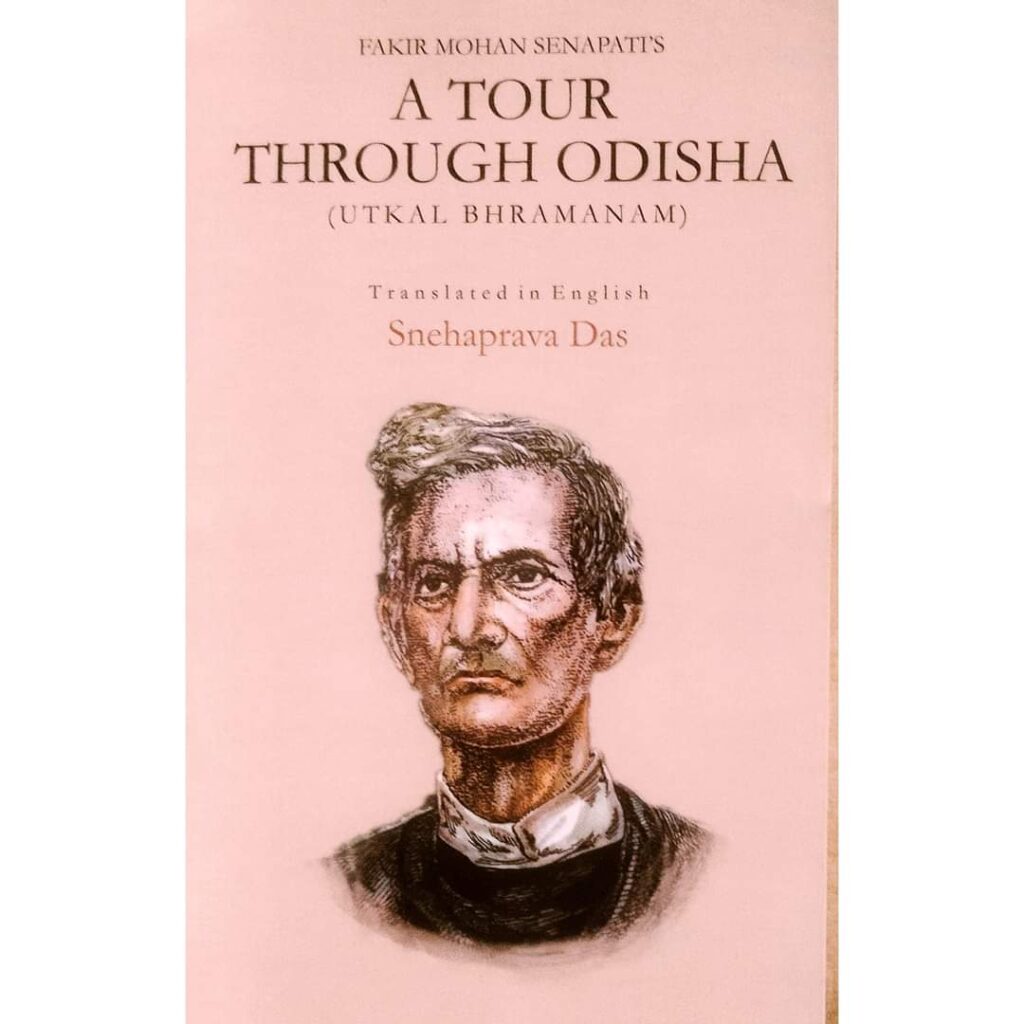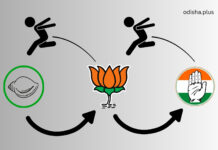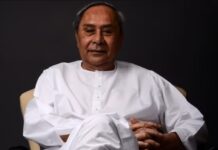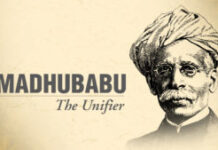Bhaskar Parichha
Utkala Bhramanam is a multilayered text that could be read as a satire, a historical account of the great achievers of Odisha, a biography, and a fun-exciting parody
Book Review
As the first of the innumerable pieces of travel writing in Odia, the ‘Utkala Bhramanam’ (Utkal-ancient name for Odisha and Bhramanam-tour) can be considered as something other than a travelogue. Fakir Mohan Senapati, in his debut poem, ‘Odisha Journey’, does not recount the experiences he had on this trip. This is implied by the poem’s title. The poem traverses Odisha’s cultural space irreverently and provocatively rather than literally.

‘Utkal Bhramanam’ has now been translated into English as ‘A Tour Through Odisha.’ Certainly, this translation by Snehaprava Das couldn’t have come at a better time. In addition to being timely, the rendition gives the readers an idea of what Odisha was like in the early twentieth century.
A former associate professor of English Dr. Snehaprava Das is a noted translator and poet of Odísha. She has translated several Odia texts íncluding novels, short story collections, poems, plays and non-fiction writings into English. With five collections of English poems, she has received the Prabashí Bhasha Sahitya Sammama, the Jíbanananda Das award and the Fakirmohan Anubad Sahitya Sammama for translatíon.
An invocation is made to Goddess Sharala – the goddess who inspires creativity throughout the universe – at the beginning of the poem. Before writing any poem, poets traditionally invoke the mercy of the gods and ask for their blessings. Fakir Mohan’s invocation has a particular quality that stands out from the rest. Rather than following the traditional invocation pattern, he ridicules the practice by describing it as shallow and ridiculous:
A popular saying goes in the village
That some fellows have the habit
Of buying abuses;
I may be one such fellow
But I cannot help it,
That is the way you have made me O’ Goddess
To buy censor is my happy habit.
Senapati brings a socially fragmented Orissa together with his mockery and homage to ordinary people, the Mahajana (renowned individuals), British administrators, kings, zamindars, writers, poets, philanthropists and scholars, uniting a divided nation.
There is an equal balance between his celebration of local heroes, and his criticism of the younger generation of literate English-educated Odias. Senapati picks on every aspect of their lives, from their food choice to their diction, clothing, and toilet habits to all aspects of their lives. Though the poem is biting and sarcastic at times, it pays tribute to Odia traditions and a simpler way of living. It is nostalgic for a bygone era. In a sense, this mockery was an appeal to the natives to take pride in their own national and cultural identity.
The poem is written primarily in Odia, but there are generous doses of many non-Odia words, phrasal verbs, and even phrases picked from other non-Odia languages like Telugu, Bengali, Urdu, Bhojpuri, and even English used in it. Shortly after that he grieves Odisha’s disintegration:
But alas! The land is now dismembered
Its opulence is lost in oblivion
Its south the ‘Kamma’s and its north the Bengalis
Have grabbed as their own.
His concern is the way the non-Odia provinces exploited the Odia people and benefited from their hard work.
The Marwaris, the Bhojpuris and the Gujratis
Have monopolized
Odisha’s commerce and trade,
The Odia people toil and till farmlands
The Gujratis reap the benefits instead.
No less bitter is his attack on the greedy servitors, or the so-called Pandas of the temple of Lord Jagannath at Puri:
The pandas here are too kind on the
Devotees and pilgrims
They could provide them with a passport to heaven
By giving them a small pot
Of the Lord’s food offerings.
The tone of Utkal Bhramanam is mainly satirical, but is also interspersed with that of the elegiac where he mourns the loss of important figures like Pyari Mohan Acharya, Ravenshaw Saheb, Ramachandra Birabara , the ruler of Talcher, nostalgic when he sings wistfully about the good old days he spent at Sambalpur and is eulogizing when he showers praises on Poet Nanda Kishore Bala, Madhusudan Das, Godavarish Mishra, Gopabandhu Das, Ram Shankar Ray, Gouri Shankar Ray and many others for the selfless service they rendered to the cause of the Odia language.
Writes Snehaprava in the introduction: ‘Utkala Bhramanam is a multilayered text that could be read as a satire, a historical account of the great achievers of Odisha, a biography, and a fun-exciting parody at the same time. It could also be read as a document that catalogues the names of important persons who made significant contribution to the retrieval and reshaping of the Odia identity that was facing a big risk of going out of existence. Fakir Mohan critics observe that the poem records the details of Senapati’s hard struggle to connect the dismembered parts of Odisha through an imagined journey in its cultural space. This deceptively simple text actually has manifold contours of narrative ingeniousness that demands a serious and in-depth study.’

Despite the nuances of the original text, Senapati’s Odisha Tour has been brilliantly translated by the author, while retaining the original ethos. Senapati’s original work has a certain enchantment to it, as well as the translation of the original work. It is quite inspiring to see a book of this caliber being presented so elegantly by Pakshighara Prakashanee.
For anyone who wishes to gain an understanding of Odisha before 1900, this is the book to read and revisit. As the translator explains, this book is part satire, part historical account of Odisha’s greatest achievers, part biography, part fun-exciting parody and part ode to the state of Odisha.
Utkal Bhramanam
Fakir Mohan Senapati
Tr. Snehaprava Das
Pakshighara Prakashanee
Bhubaneswar
(Bhaskar Parichha is a Bhubaneswar based senior journalist and columnist. Views are personal)





















